The South Asian tradition is still that parents dictate their children's lives, including and up until the point of marriage. Marriages are still mostly arranged in these parts and parents take their daughters out of education for many reasons. The most obvious reason being that they want their daughters to be able to devote their time towards being a wife and a daughter-in-law to their new families. Pratham, an NGO, does amazing work all over the country for a range of causes including opening this Open School.
Ellie Walton is an American documentary filmmaker. She has documented the stories of people affected by a change in their lives which is, often unfortunately, a socially accepted change. Ellie has made incredibly moving and truly inventive and perceptive films about the social conditions of people in the US, UK, Africa and, now, India. In the midst of working with these inspirational and inspired young women, she and those young ladies spoke to me about the work they've done, what it's been like outside their comfort zones – for both Ellie and the young Gujarati ladies – and what the future holds for them.
Now, the Voice team was handed this immense opportunity by our editors in an email, which included: "Do we know any Gujarati speakers?" Little did they know that I was one. I jumped at the chance of speaking to these young ladies because my heritage is important to me. I know an uncountable amount of Gujarati women who've been through exactly the same, except without the chance to go back into education. I didn't need to ask these women what it was like for them to go back into education and what it meant to them because Ellie had already captured their excitement and their unbridled passion in their 'digital letter'. Yashaswi Desai first had the role of translator but had so much inclusion in the project that she became the co-facilitator, too.
What with it being film month, on Voice I asked these ladies Gopi, Bhavna, Sheetal, Hetal, Meena, and Jannok about the experience of filmmaking with Ellie. I asked them what they thought was going to be happening when the school told them that Ellie was coming and they generally didn't know what to expect. They were amazed at the fact that someone was going to come from overseas to talk to them about their stories, and were also worried about how they were going to tell their own stories to Ellie. They were reassured, however, when the atmosphere as they were talking with Ellie was friendly and comfortable. The girls expressed how they opened up more to the camera slowly, and were amazed by the result when they saw the digital letter that Ellie had put together.
I asked them what it was like to make the film; whether it was easy or difficult and whether they enjoyed it. It was a little difficult for them to start with – but that's only natural. Many people who go into filmmaking really are not prepared with how difficult a craft it is. Then, they did precisely what aspiring filmmakers do: they realised how they can use this medium to inspire people with their stories, and so they persevered. They enjoyed making the stories with this in mind because these were their own stories. Something was said which really put things into perspective: they felt heaviness lifted from their hearts when they picked up the cameras. You can certainly feel in the words they speak how fully they understand that their stories needed to be told. Education became precious to them and enriched their lives clearly, and they didn't want anyone to miss out on that.
Picking up the camera and learning about shots and sizes and framing was all a part of the learning experience for them. Technology isn't everywhere in Gujarat like it is in the West; for them to learn to use a camera, and at the same time get fully stuck in and make their own stories known, was something into which they could put all their passion and desire. These women were never asked what they wanted to be and what they wanted from life; let alone what they wanted to learn. For them to be given this opportunity was an incredibly exciting one. They told their life stories and therefore they input their entire lives into the film – what couldn't be filmed they divulged in their frank and open commentaries, and what could be is all in pictures on the film. When I asked them what they had learnt specifically, I got the answer I wanted, in that they'd learn about photography and filmmaking and cinematography. But they indulged in my question more than I had intended. They took more from making this film on an emotional, conscientious level than the skills they learnt. They, again, felt amazed at how well the entire project had made them express themselves, and how much telling their stories to this lady and her camera had given to them personally. It was a beautiful thing to hear.
I sort of went out on a limb and asked whether they'd be interested in making films in the future. I was worried whether they'd turn around and tell me I was stupid for thinking they could possibly get their hands of film equipment. It was the complete opposite – something I certainly wasn't expecting. There was an oddly promising laughter among them before I heard:
"If we have the chance to make more films then we'll definitely make them!"
I was fixated on how open these girls were being. The stigma is that Gujarati girls are quiet and so introverted that they give little regards to their own image. The opportunity for them to go back to school has obviously made them set in their ways and able to speak so clearly about what they want, what they really want: this is the foundation of being a good storyteller.
I confronted the expected social stigma when I asked them what their families thought about the project and how much persuasion they had needed. Again, this was asked with an idea I already have about family life in these parts. I was met with an abrupt and short, but really uplifting response.
"None of our families said no."
But they certainly got jip. One of them recalls how her siblings teased her, saying that you need to know how to hold a camera first before you make a film and this isn't your 'thing'. Triumphantly, she turned around and told them to go and look at the film she's been involved in making online, then talk to her about what she's capable of.
This interview was supposed to happen on Friday 21, but Ellie asked if we could postpone. Why, you ask? Because they needed to sort out details for the film to be screened at an international film festival. Yup, these girls from a minute village in the rural state of India have been accepted for a film festival – even I'm yet to have that luck! The festival is called Women at Work, a 'multi disciplinary festival combining theatre, installations, dance and film.' When I asked them whether they were all going to the festival, I myself was met with jip. I should've learnt my lesson by now but I still expected that they wouldn't all be allowed to travel to the festival, but I got:
"Of course, it's our film so of course we're going to the festival!"
I then got invited to the festival – an offer I'd bite at so quickly if I were in the position! You'd expect them to be worried about the reception of their film, but the only worry they have about the screening is seeing themselves on a large screen. Besides that, they feel nothing but excitement. Then they got me to speak my pigeon-Gujarati that was more fun for them than me, I can tell you.
I haven't enough words to describe how moved I was hearing the responses from these enthused and inspired young women – their wants and their excitement came out in what they said to me and to have been a part of experiencing that was truly humbling. I thank them whole-heartedly. The film,Hu̇ Chu̇ Mari Udaan (I Am My Flight) will be screened on Sunday and we, here at Voice, give them the heartiest of luck and blessings.
In this, the second part of my interview with Ellie Walton and the young women with whom she is currently working in India, I spoke to Ellie herself and her experiences in life and being a documentary filmmaker. What is great about being a documentarian is that you have the ability and the chances to work with and research the most unheard of and secluded stories and communities in the world. This begs the question of how they are discovered. It takes Ellie a while to recount the sequence of events that led to her ending up in Gujarat when I ask how she ended up there. Five years ago, when visiting a friend in Gujarat who did some work with Pratham after having worked with some young female offenders in Scotland, she shared with Pratham the stories of these young people she'd just worked with. The lady from Pratham, with whom Ellie shared these stories, became really excited about the idea of using video with young, marginalised girls. At this point, the seed was planted. About five years later, when Ellie was granted some money to tell some stories, she remembered this chat with Pratham and pursued it from there.
Pratham had been carrying out this project of getting women back into education after marriage all across India but a former student who had spent a lot of time in a city nearby to the Pratham Open School in Gujarat called Amdavad (Ahmedabad) told Ellie about the work that the Gujarat school had been doing and connected her with them as well as other filmmakers in Amdavad.
She had a very wise approach when it came to her expectations of working in Gujarat so that she didn't end up disappointed when she arrived.
"I tried to…clear my mind of expectations before coming."
Before her arrival in Gujarat she was working for a production company doing some community based videos about education in Washington DCwhich took a lot of organisation and preparation and so Ellie was particularly excited about working in Gujarat, not only because it was abroad, but because it was going to have grown organically and not from copious amounts of pre-production and planning so without this, she was able to arrive in Gujarat without any preconceptions about what it might be like. After this, she went on to speak about how blown away she was by the warm and openness she had on her reception following shyness and a language barrier on both sides – which led nicely onto my next question.
I asked about the difficulties of the language barrier. This is when she told me about Yashaswi Desai and that she originally went with Ellie primarily to translate for the project but then took on big responsibilities of consultation during the process and became a co-facilitator on the film. They did exercises with the young ladies to help them be more comfortable with each other, which was transcendental of language.
I moved away from the experiences in India and asked about her filmmaking in general, in particular, from where her passion for documentaries stems.
"My passion comes from film's ability to validate people's stories and voices and particularly communities that don't always feel heard…"
She describes film and documentaries as tools and platforms to be heard and talks about how these young women and how they have felt their own stories come to life and how they've been made to feel important by being involved in making this short film. They have found that they have things to say, things which have value and what they say deserves to be heard and matters – such is the power of film, 'There's a beauty there…' She provides, as a filmmaker, a medium for these unheard voices to be heard. She explains that her filmmaking process is always collaborative by which she means her subjects also help her with her documentaries just as the young ladies in Gujarat have. This was the case with the young female offenders in Scotland and the subjects of her films in Washington D.C.
This leads again, poetically, to my next question, which was about the collaborative element to her filmmaking. It is evident, if you look at her work that the people who are the subjects of her film help her make the film, she gives them the camera or she tells them to take her somewhere that they think is important. This, she attests, makes the filmmaking process a co-operative one, which is a beautiful sentiment – the paradigm of storytelling is much purer in this respect.
"It gives them ownership of their story."
"As a filmmaker I want more stories to be shared so people can have a greater understanding of each other."
"I think if we had more compassion, we'd share more beauty in this world."
This collaboration is something I've never seen before. Documentary filmmakers normally keep a distance from their subjects for the sake of objectivity. Even in the smallest documentaries, I've never heard of anyone who made the films with their subjects. I asked her where the idea came from because it's such an original idea and she finds it difficult to recall. When she eventually told me the answer, it touched me personally. She came into the arts in exactly the same way I did, through the community. She told me about her youth community arts group full of girls who'd write plays and draw and act. She let me in about how important that group was to her as a place in which she was allowed to express herself creatively in terms of growing up and being able to navigate through life in Washington D.C.
Later in her life she attended the University of Edinburgh. Here, her group of friends followed the same structure as the arts group in Washington D.C. with whom she would make jewellery and had her first practice with radio, video and the media. It's from these experiences of being in an arts collective that made her a filmmaker that does things not just for other people but with other people. A political point is made later when she remarks that community arts are often separated from 'art' and that there is a way to do both in the way she approaches her work.
After her degree in Anthropology at the University of Edinburgh, a friend of hers went to Sierra Leone to make a documentary there. At this point, Ellie had just applied to study Screen Documentary at Goldsmiths for her postgrad and basically decided to tag along. Before this, she had had no experience of making her own films – without the group of young female artists in Washington D.C. from her childhood. She considers her time at Goldsmiths – the first time she'd time to focus solely on film – as invaluable and describes the question that a lot of art students have which is whether a degree is necessary or worth it. She puts the value of her Master's down to what she'd mentioned earlier about having had the ability to explore her craft with other people who are at the same level as herself. This was something I hadn't thought of as a pro myself but certainly reaffirmed my own degree to me.
It occurs to many that filmmakers have a 'style' and this style can be a style of many things. Their style could be something constant in their films' content or in their aesthetic or in their choice of sound. People can speculate themselves as to what other filmmakers' styles are but the only person who can say for certain what that style is and that is the filmmaker themselves. I put to her that I could see that her style was along her subject matter of 'social interactions', which I sort of made up but apparently it was bang on the money. Her own explanation was much for moving and poetic
"I strive and I hope to tell stories that are really honouring people's beauty and voices and providing a space for that. And I hope that also reflects the aesthetic."
Ellie's films show her really following people and see her take a step into their lives from waking up with them in the morning and seeing them as full people so when she talks about honouring their beauty, it's not just about honouring the nice parts or the pretty parts – "beauty if deeper than that". It's not academic; it's not about the sound bites (sound recordings of interviews in docs) or cutting straight to the action or the drama. It's about providing a space in which you can really connect with them, as people. It's about the everyday, unsung hero; people who go through everyday struggles and make mistakes and are courageous in their small ways.
"[In this way,] the camera is with them on their journey; it's not separate from them."
Films, by and large, are written. So if it's fiction, the smallest detail aids a quality script. In non-fiction, it's more of a structure that is written be that a structure of an argument or a structure of events, chronological or not. Documentary film directors, more often than in fiction, write their films, too. When I ask about the writing of Ellie's films:
"Yeah…I never write a script."
She doesn't like writing scripts which makes sense after you've heard her speak about organically grown stories.
Close to concluding, I ask her for what she'd say to aspiring documentarians. As pragmatic as ever she replies: "I would say…go out and do it, you know." She advises you all to take a moment to think about what you believe in, what you care about and "go for it". She thinks that if you need to wait for and get frustrated by funding, you second-guess yourself and the most important thing is to test yourself and do it; make it happen. If you have an idea, start. Pick up a camera, it doesn't matter what camera you have, it's about the story, think about the story you want to tell. Take the time, documentaries take time and you want to take advantage of the passion you have and make sure it comes across in your film. She feels that sometimes people get bogged down by funding and what camera they have, if you spend your time worrying about these things – which are important in their own ways, granted – less and just go out and make things happen for yourself then you could be making the film you've always wanted to make.
On a slightly unrelated final point, I ask her opinions on scepticism about the documentary genre. Far too often do I hear that documentaries are boring and unexciting and I just wondered what she had to say about this as someone clearly impassioned by it. She tells of how people think that documentaries are just misunderstood as these non-fiction texts about current issues or reality TV. She thinks the documentary can be misunderstood as this 'dry' form whereas a good documentary, when they're at their best, are windows through our lives and can really give us such an insight into who we are and who we want to be and all of our eccentricities and idiosyncrasies.
"We're such strange creatures, us humans and we're so…there's always a beauty there and when a documentary's at its best, it's able to really capture how bizarre and weird and beautiful we are and I find that so fascinating."
"With documentary, like any artform, like anything, there's a range of those things, there's great ones, there's bad ones, there's boring ones. But really, it's stories, you know and as humans, our history is built upon telling stories and listening to stories and I find that to be totally fascinating."
I haven't enough words to describe my gratitude to Ellie Walton for how much she has re-enthused me with a passion and desire to be in the arts.

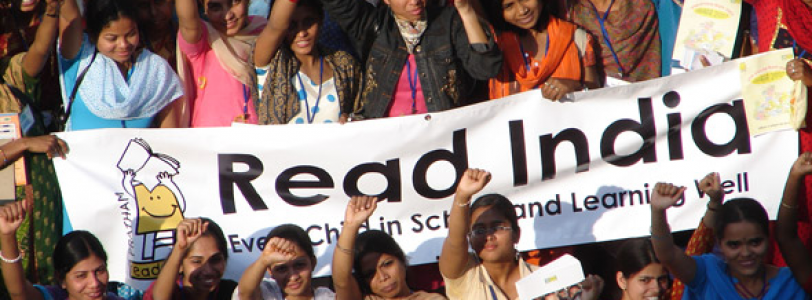
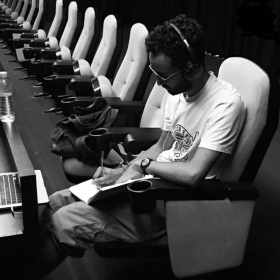

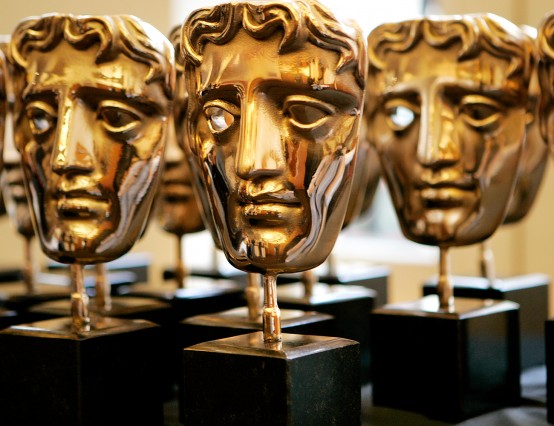
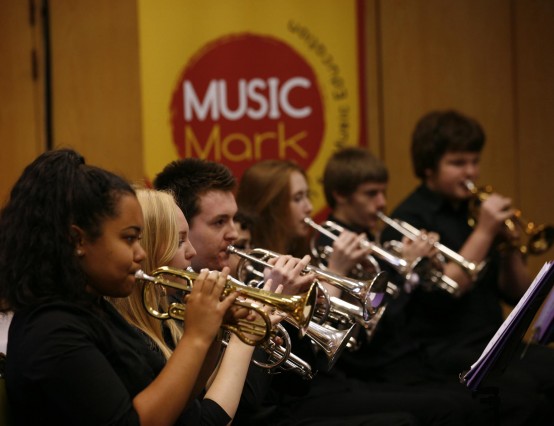


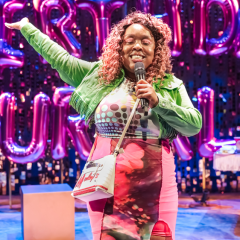
0 Comments